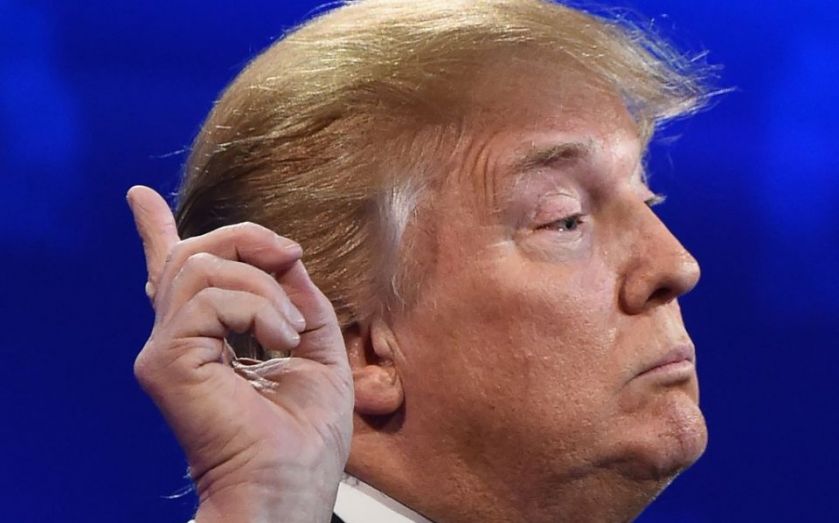US elections 2015 polls: Why both parties are putting their faith in the worst candidates out there

Even after Wednesday night’s CNBC Republican Presidential debate – during which senator Marco Rubio (FL) and senator Ted Cruz (TX) unquestionably dominated the discussion with their wit, direct answers and rounds of applause – the unofficial polls still declared Donald Trump the winner for a third time in a row.
Couple that with last week’s crowning of Hillary Clinton as the inevitable Democrat nominee, and one has to wonder: what on earth is either party thinking? Both candidates are ticking time bombs.
Trump has always been known for his brazen attitude, but his behaviour since he announced his candidacy adds words like “discriminatory”, “chauvinistic”, and “utter nut” to his list of descriptives. When you compare his CV to the accomplished governors, senators and professionals standing on the debate stage next to him, it is baffling that his one-liners and rude comments about other candidates’ hairstyles have kept him in the lead.
Clinton doesn’t have any nasty comments directed towards female journalists or Mexican immigrants attached to her name. What she does have, however, is a looming FBI investigation into her conduct as secretary of state, as well as a damning indictment from last week’s Benghazi committee hearing, which found that she was knowingly lying to the public for weeks about the reason for the attack on the US consulate in Libya in 2012.
When Americans head out to the polls in a few months for the Presidential primaries, is this what they want to vote for? Not exactly.
Each party is having an “establishment versus anti-establishment” showdown, and Clinton and Trump are reaping the benefits of voters’ preferences, despite how little they might deserve it.
Clinton is the ultimate DC insider. She and her husband have been actively involved in politics for over 30 years; she believes in a sizeable, well-oiled state, and has all but fully embraced President Obama’s political agenda.
While Obama did not manage to break Reagan’s free-market paradigm, he did bring in some major liberal reforms – specifically to healthcare – that remain on shaky ground. If the Democrats are to see Obama’s legacy become fully cemented, their best bet is an “establishment candidate” who will see through the plans already implemented.
Her Democratic opponent, senator Bernie Sanders, might be the party’s left-leaning dream boat – reflected in his decent poll numbers in a few swing states – but Clinton, despite her flaws, remains the obvious pick for stability and the progression of the Obama doctrine.
Republicans, on the opposite end of the spectrum, are not only tired of the President’s agenda – they are deeply untrusting of their own party, which they feel has failed them since the Republicans gained control of the House of Representatives in 2010, and then the Senate in 2014.
From many Republican voters’ perspectives, conservative representatives stood by quietly while the debt ceiling was raised (multiple times) and while Obamacare drove up insurance premiums, forcing once-happy customers onto state-run plans.
As a result, the Republican base is punishing the party elite by supporting the most politically incorrect, non-establishment figure one could concoct (who doesn’t need to play politics for donations).
Trump’s weakening debate appearances and stump speeches show he may be less likely than Clinton to win his party’s nomination, but the only candidate on his heels is a neurosurgeon-turned-pundit, who has never held an elected position either.
The Republicans are more likely to come to their senses, partially because they have a host of credible options to choose from. But for now, it remains the case that both parties believe the best bet of implementing their respective agendas is to elect two of the worst candidates on the ballot.